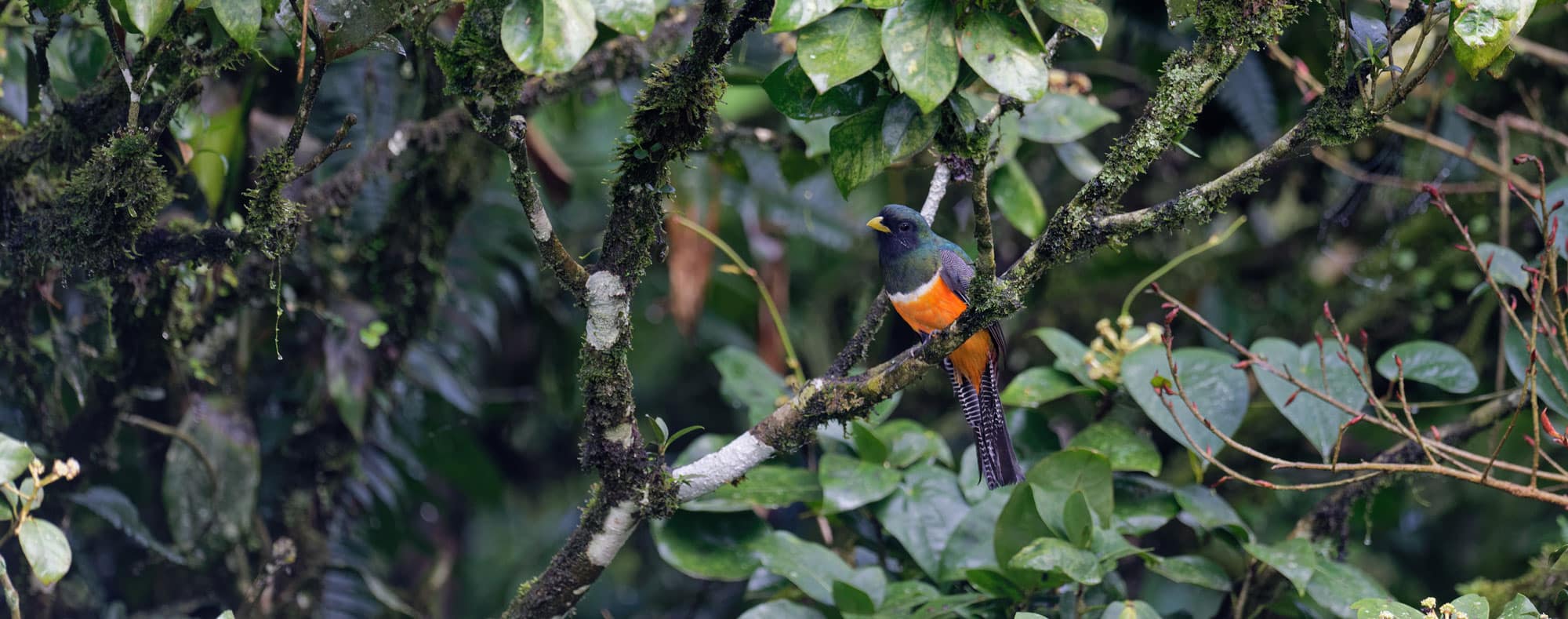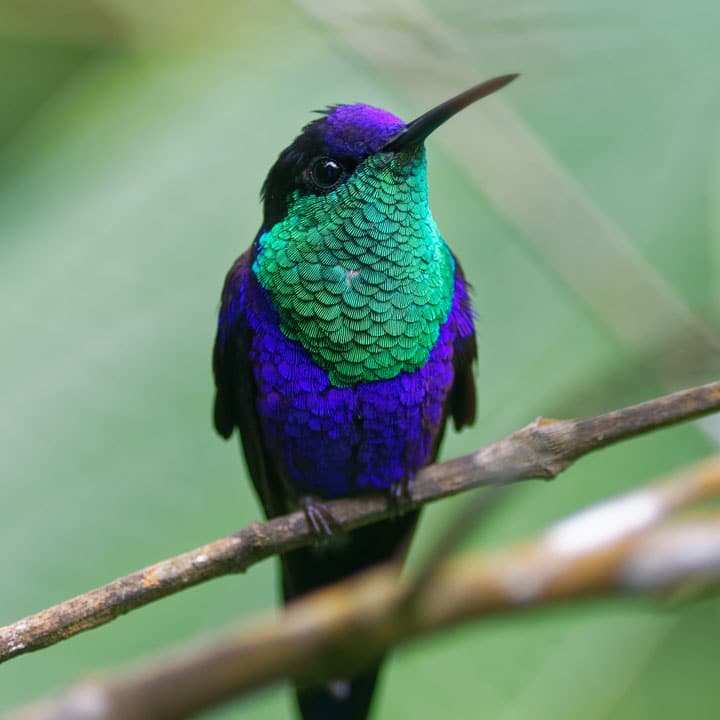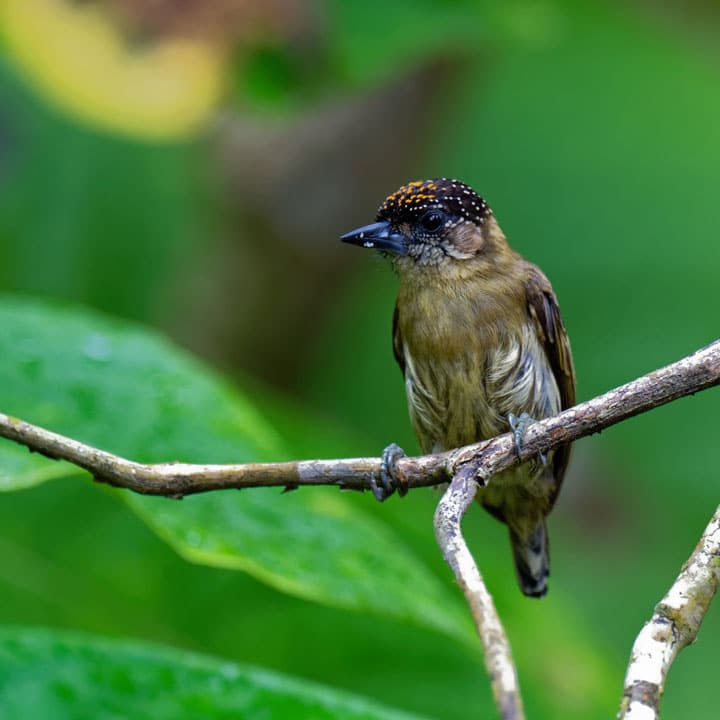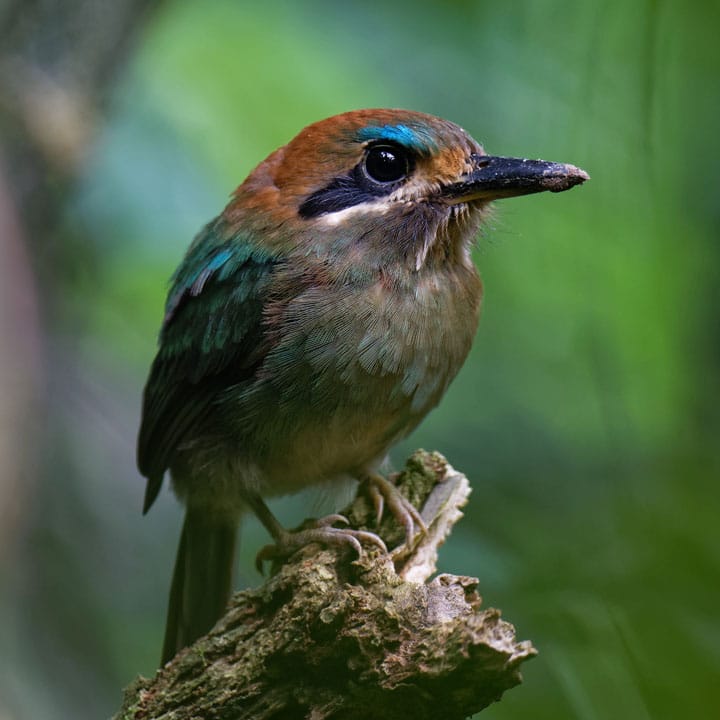Ethics
We are so fortunate to have such great birds and biodiversity around us. We cannot take wildlife for granted, and it is our responsibility to care and show respect for the natural world – whether that be the birds themselves, their habitats, food or behaviors – in our actions and values. Please practice the following birding ethics in your daily lives:
Respect their space
Birds will not hesitate to let us know if they are agitated or upset. Do not chase or invade a bird’s territory if it is showing signs of agitation. A fleeing bird or a bird giving an alarm call may indicate to us that you may be too close. Nesting birds may not always flee, yet do a distraction display to ward you away from their nest and young. Absolutely do not disturb a bird sitting on its nest, as it will be reluctant to fly away yet become highly stressed. Your guide will set up the high-power spotting scope for you to enjoy nesting birds from a safe distance.
Reduce disturbance
Noise, heavy trudging through leaf litter and often flash photography will easily disturb birds and likely cause them to fly away. Consider ways of reducing disturbances to the birds and wildlife when it the field. For those who use green pointers, including our team of professional guides, it is extremely important to not shine the light directly on the bird or even too close to the bird; ensure a safe distance in order to reduce potentially harmful disturbance.
Be mindful of use of recordings
The use of recordings, when used ethically, can be an excellent tool for bringing in shy rainforest birds in good view. However, this is one of the common tools that is frequently misused in the field. Use recordings judicially and limit overplaying bird songs and calls. Play the call up to only a few times and stop as soon as the bird comes in. Do not continue to play the call if the bird does not respond, and overuse of playbacks and recordings at a particular site often has negative effects of birds not responding at all.
Wear neutral clothing
Some birds, especially birds of the forest understory, are sensitive to bright colors on shirts and clothing. So, leave the Hawaiian shirts at home.
Be especially respectful of rare or endangered species
Some species are common and adaptable to human disturbance, but others are very sensitive to even the slightest disturbance. In particular, endangered and rare species, as their populations are in low numbers, are especially sensitive and disturbances can have negative effects on the species.
Don’t litter
In addition to being unattractive, roadside and trail garbage is known to harm wildlife in so many ways – directly and indirectly, and it is generally bad for the environment. Please don’t litter, it’s as simple as that. Any trash you accumulate while in the field please bring it back to the lodge with you and dispose of it there. Your guide will always have a trash bag available for collecting trash.





